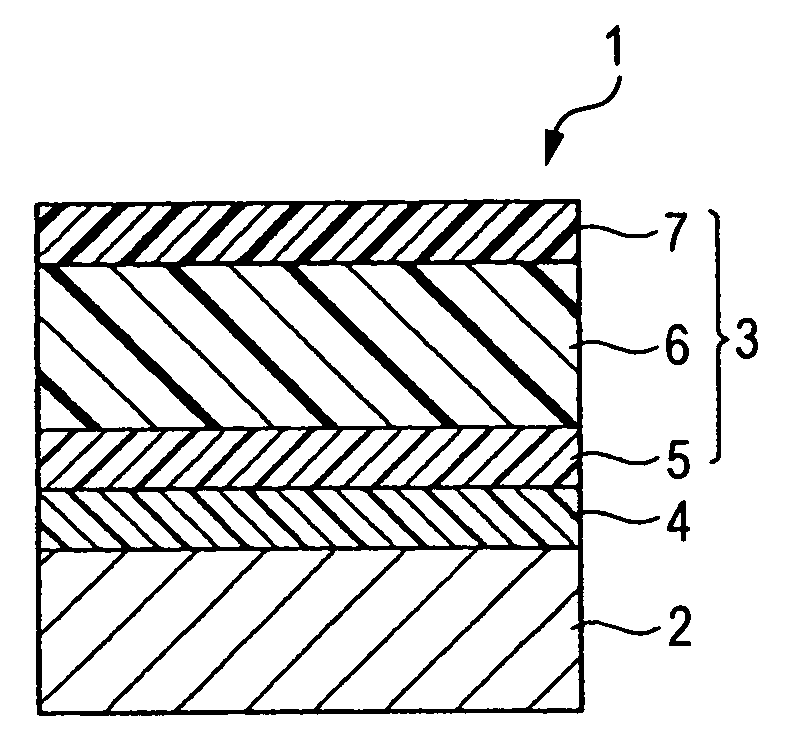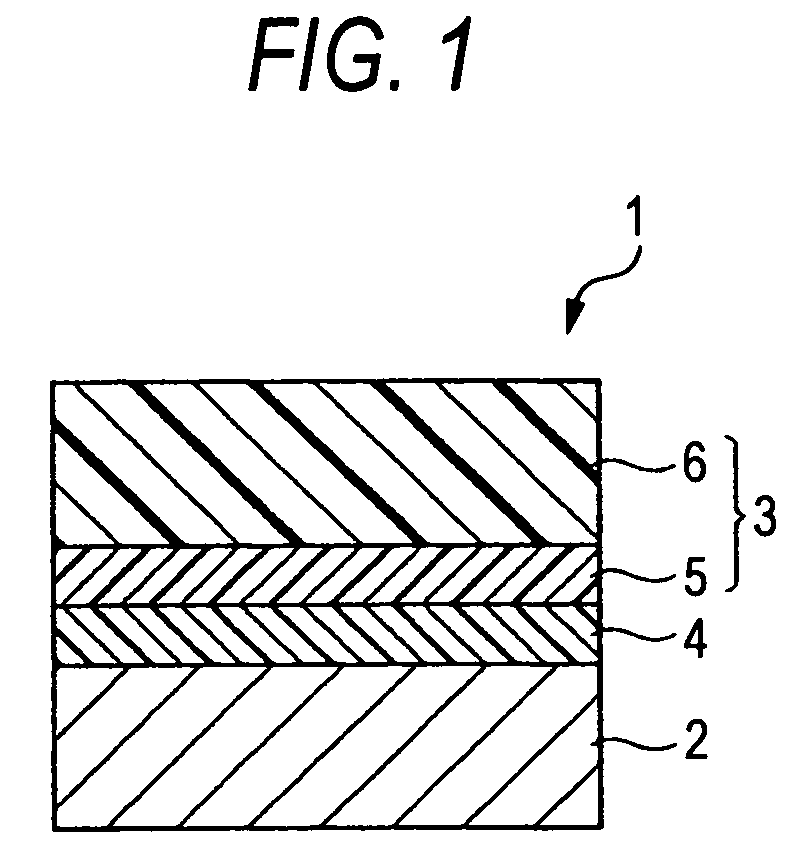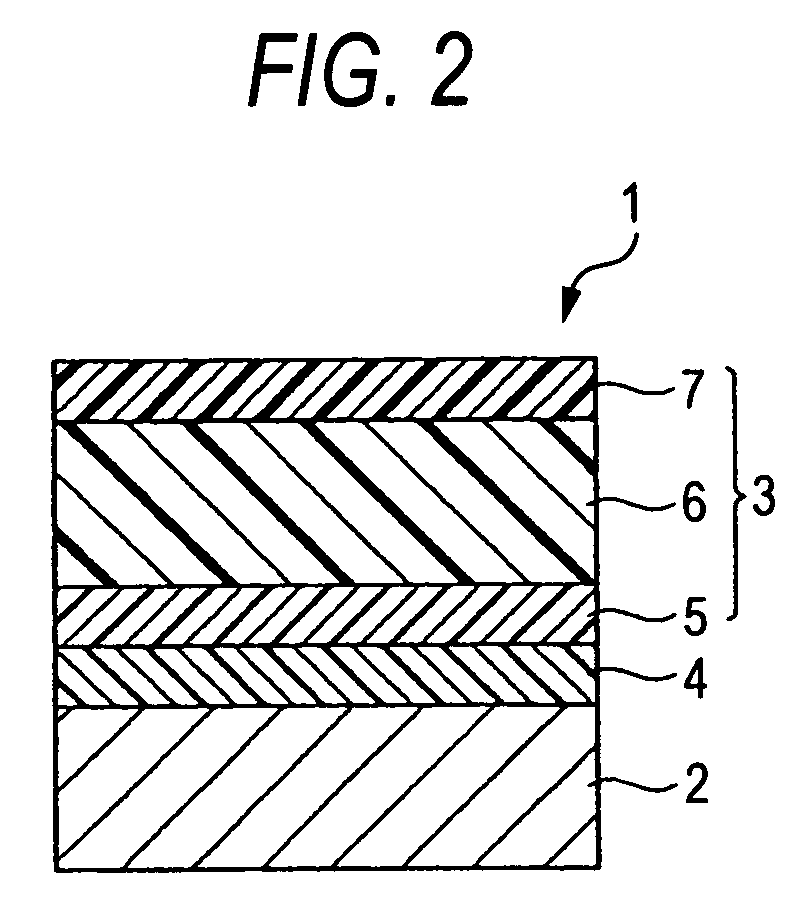Charge-transporting compound, electrophotographic photoreceptor, image-forming apparatus, and process cartridge
a technology of electrophotographic photoreceptors and charge-transporting compounds, which is applied in the direction of electrographic process apparatus, corona discharge, instruments, etc., can solve the problems of image defects, severe requirements for high-speed operability and high reliability of these devices, and not always satisfactory for forming high-quality images. , to achieve the effect of prolonging life, prolonging life, and prolonging li
- Summary
- Abstract
- Description
- Claims
- Application Information
AI Technical Summary
Benefits of technology
Problems solved by technology
Method used
Image
Examples
examples
[0272] The invention is described in more detail with reference to the following Examples, to which, however, the invention is not limited.
example a-1
[0273] 100 g of 4,4′-bishydroxymethyltriphenylamine is dissolved in 300 ml of toluene. To the solution is then added 65 g of pyridine. The mixture is then thoroughly stirred over a 15° C. water bath. Subsequently, to the mixture is slowly added dropwise 78 g of methyl chloroformate in 4.5 hours. After the termination of dropwise addition, the mixture is then thoroughly stirred for 12hours. The reaction solution is then put into a separating funnel where it is washed with 500 ml of saturated saline solution four times and then with 500 ml of distilled water four times. The solvent is then distilled off the toluene phase. The residue is then recrystallized from isopropanol to obtain 133 g of a desired charge-transporting compound as “Exemplary Compound 118” represented by the following general formula. IR spectrum of the compound thus obtained is shown in Fig. 10.
Exemplary Compound 118
example a-2
[0274] The procedure of Example A-1 is followed except that 83 g of ethyl chloroformate is used instead of 78 g of methyl chloroformate. As a result, 146 g of a charge-transporting compound as “Exemplary Compound 119” represented by the following general formula is obtained. IR spectrum of the compound thus obtained is shown in FIG. 11.
Exemplary Compound 119
PUM
 Login to View More
Login to View More Abstract
Description
Claims
Application Information
 Login to View More
Login to View More - R&D
- Intellectual Property
- Life Sciences
- Materials
- Tech Scout
- Unparalleled Data Quality
- Higher Quality Content
- 60% Fewer Hallucinations
Browse by: Latest US Patents, China's latest patents, Technical Efficacy Thesaurus, Application Domain, Technology Topic, Popular Technical Reports.
© 2025 PatSnap. All rights reserved.Legal|Privacy policy|Modern Slavery Act Transparency Statement|Sitemap|About US| Contact US: help@patsnap.com



